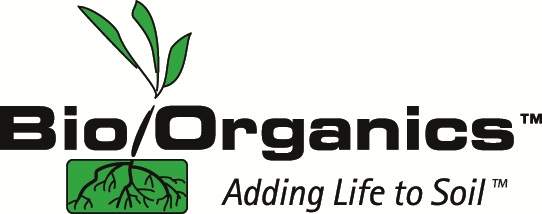Other than a nice continuing movement toward organic production, it's hard to find any significant changes in how we grow our food compared to 50 years ago. Sure, the process has become much more mechanized and farms have become much larger, but the basic plow, soil-testing, and fertilizing routines are mostly the same.
Even in organic farming, the major difference is usually just a switch to natural rather than man-made plant foods. Most farmers still feel that they need to provide all the nutrients that their crops require, while the harnessing of microbial soil organisms that can nourish plants remains largely confined to endless lab experimentation and exquisitely worded journal articles.
I'm afraid that the new push to grow more corn for ethanol fuel is just going to give a major boost to the already-emerging problems of soil depletion, salt buildups, and fertilizer runoff into streams and aquifers. Corn is regarded as a crop that hungers for heavy nitrogen fertilizer, which is consequently going to lead to higher nitrate levels in underground drinking water, larger "dead zones" off the mouth of the Mississippi, etc., etc.
Add in the complete removal of plant residue, which would really benefit the soil if it remained in the field, and I for one am shaking my head at the shortsightedness of it all. One scientist who has done a great deal of work with marginal soils has predicted that even our richest crop soils will see yields suddenly take a tremendous drop after they fall below some essential threshold level of humic or minor/trace elements that are not being replenished.
This debate will go on for years, but using food crops to fuel motor vehicles seems nuts to me. I have a fairly good working knowledge of solar collectors, and if there were strong enough rebates (free, even?) the U. S. has millions of existing south-facing and flat roofs where individual collectors to heat water and generate electricity could be installed. Heck, throw in some generous government rebates for electric/hybrid cars and we could eliminate much of our air pollution at the same time. Why not preserve and protect our valuable crop soils as much as possible for those who come after us, and use free and clean sunshine as much as possible? (Intentional use of "as much as possible" twice in that sentence)
But, of course, there are powerful vested interests in keeping fertilizer and other petroleum-based product sales up, and farmers are always conservative when it comes to changing proven practices, and research is conducted more to produce publishable reports than for helping develop practical applications. And, most likely, this is the way things will remain until some disaster-emergency-crisis level is reached. Let's face it, that's how we typically run our world.
One bright spot - in my business, I do get the opportunity to deal with some truly innovative and dedicated growers who are doing wonderful things with compost, mulches, tillage, mineral additives, and microbial organisms. Many of them routinely conduct bioassays to get scientific about managing their living soil, and I expect the things they are learning will prove extremely valuable for future growers. I hope these smart bio-farmers will document what they are doing and invite university and USDA soil scientists to observe their techniques. I'd suggest that any feelings of keeping their methods proprietary and confidential should be trumped by the general good that could come from sharing the knowledge.
One note about my last newsletter regarding the conversion of the scraggly lawn at my new home to a nice bio-lawn: I use a mulching mower - an absolute must if you want to avoid fertilizers as much as possible. (That phrase again!)
Cheers, and good growing,
Don Chapman
BioOrganics
